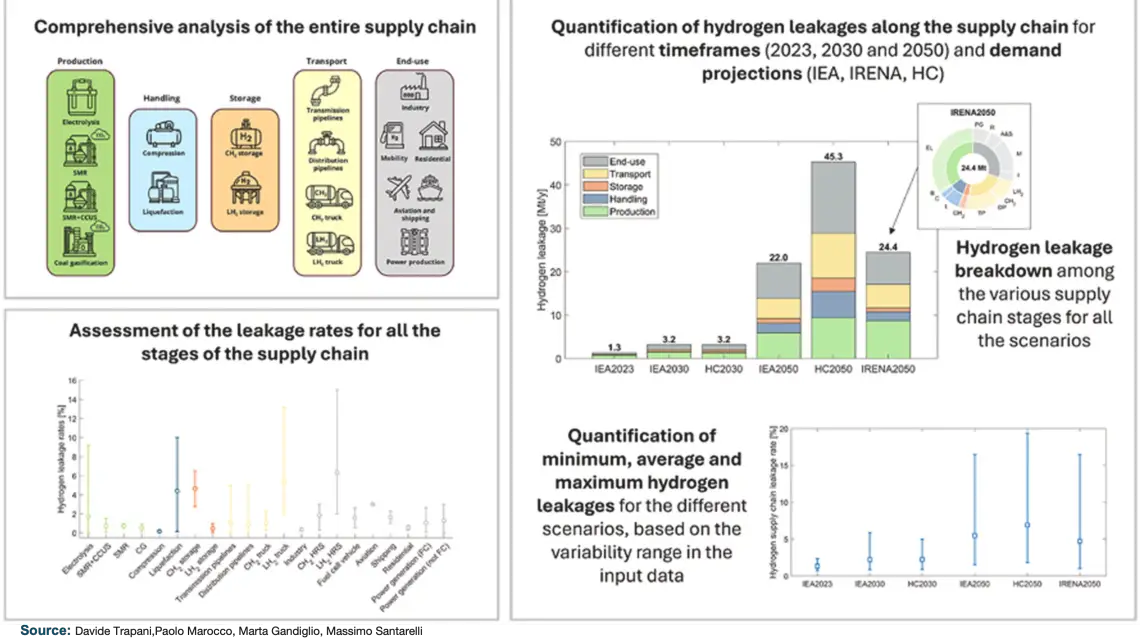
Hydrogen Leakage Could Undermine Climate Benefits, Study Warns
July 4, 2025New research out of Europe, led by teams from Politecnico di Torino and CICERO, is raising some red flags about hydrogen’s climate footprint. While hydrogen is often hailed as a clean, zero-emissions energy carrier, this new data suggests it’s not quite as clean as we thought—if it leaks.
Hydrogen leaks may pack a bigger punch than we realized
The study shows that by 2050, hydrogen leakage—from hydrogen production, transportation, hydrogen storage, and use—could end up contributing as much as 1.5 billion tons of CO₂-equivalent emissions every year. That’s no small deal. Even though hydrogen doesn’t directly emit carbon dioxide when it’s used, it still affects our atmosphere in less obvious but serious ways. It alters the chemistry of the air in a way that lets methane—an incredibly potent greenhouse gas—stick around longer. And that’s not good news for the climate.
Electrolysis and liquid hydrogen transport are the biggest culprits
The EU-backed HYDRA project found that the highest leakage risks crop up during electrolysis (when splitting water into hydrogen and oxygen) and while transporting liquid hydrogen. The tech just isn’t airtight—literally. And here’s the kicker: our current hydrogen sensors aren’t sensitive enough to pick up on leak levels that could be warming the planet. In other words, we might be missing a lot of climate-harming hydrogen sneaking into the atmosphere.
It’s time to tighten the rules and step up the tech
Experts behind the research are urging policymakers and industry leaders to take a hard look at how hydrogen is handled. The idea is not to turn our backs on this promising sustainable energy source, but rather to make smarter, more targeted use of it. The researchers recommend prioritizing hydrogen for “hard-to-abate” sectors—industries like heavy transport or steel-making that don’t yet have great clean-energy alternatives.
To truly reap the environmental benefits of green hydrogen, we’re going to need stricter oversight on leaks and a major investment in better tech. That means upgrading our detection tools, rethinking parts of the hydrogen storage and delivery chain, and building smarter regulations. If we don’t, all that clean energy talk might just be hot air.
Check the study paper here.



 With over 15 years of reporting hydrogen news, we are your premier source for the latest updates and insights in hydrogen and renewable energy.
With over 15 years of reporting hydrogen news, we are your premier source for the latest updates and insights in hydrogen and renewable energy.